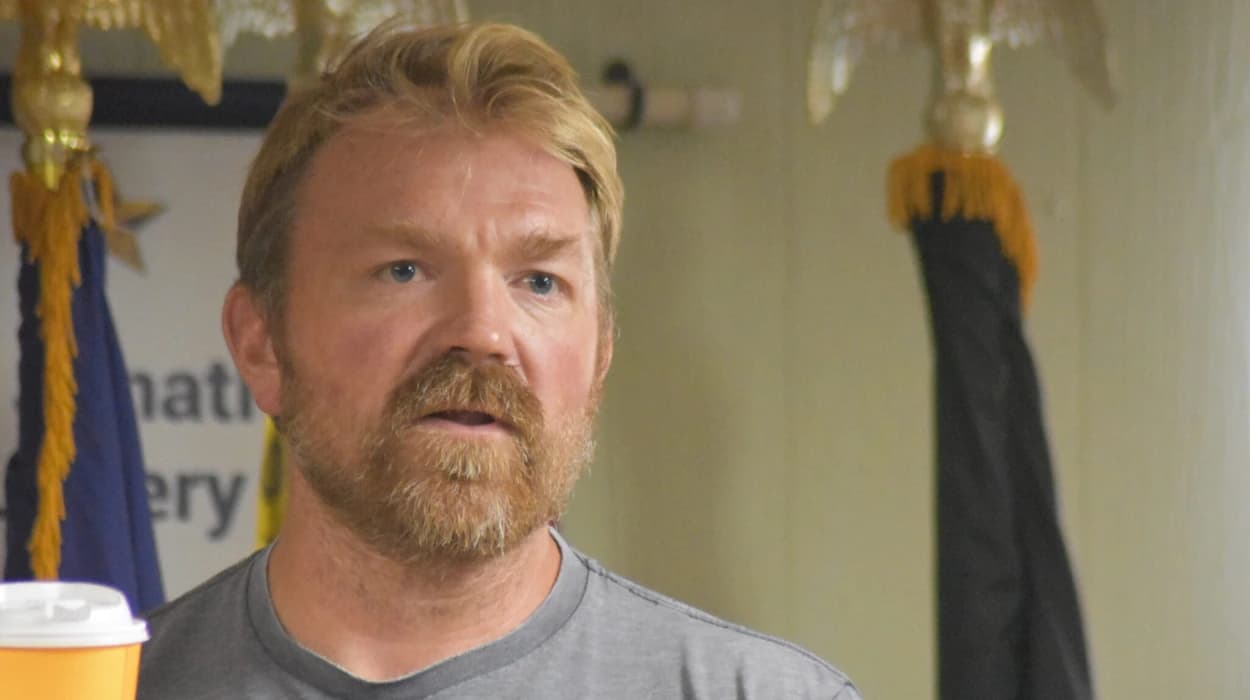Summary
- Graham Platner made first northern Maine campaign stop Saturday.
- He spoke in Houlton addressing economic frustrations.
- Platner emphasized cuts to Medicare and Medicaid harming communities.
Platner is one of several primary contenders aiming to challenge U.S. Senator Susan Collins, a Republican from Maine. Dan Kleban, a co-owner of Maine Beer Co.; Jordan Wood, a former chief of staff to Katie Porter, D-Calif.; David Costello, a former U.S. Agency for International Development official; and possibly Gov. Janet Mills, who has not yet declared a primary candidacy, are among his rivals.
“Down here we live in a world of material reality. Down here Medicare and Medicaid cuts are not numbers on a spreadsheet, they are closing hospitals,”
Platner said at the American Legion Chester L. Briggs Post 47. “Down here the inability to access things like in-home care means our neighbors die alone. That is what we see down here in the real world.”
Platner also visited Collins' hometown of Caribou on Saturday as part of his campaign tour. With 67.5% of the vote against Democratic opponent Sara Gideon's 27.4%, Collins won The County handily in 2020.
Bev Chapman, a local, and others praised him for visiting the northernmost part of the state during the Houlton stop.
“As a blue dot in this red area it is so overwhelming, It’s a struggle to go to work everyday and listen to the cats and dogs rhetoric that goes on,” Chapman said. “It’s critical that you guys come up here.”
Healthcare is a focus of his campaign, Platner told the Bangor Daily News.
“I think the collapsing healthcare system, the cost of healthcare, is one of the biggest stressors on small rural communities on rural families. If we can fix that on the federal level then I think we give a lot of people in northern Maine a helluva a lot of extra time, money and security to actually live lives that they want to live,”
he said.
Although he admits he does not see himself as a politician, Platner said he is doing this because he is an angry man who spent years bitter and disillusioned watching his community fall apart.
What were Platner's main economic promises in Houlton?
Emphasizing ongoing support for local businesses while creating opportunities in support of rural economic development. Advocating strategic partnerships and plans to openly create stronger economic foundations in towns like Houlton.
Discussing the declining visitation of tourism and a rising cost structure creating challenges for small businesses and understanding that there’s a time to adapt to the overall economic realities.
The timing of Platner’s visit was also connected with wider efforts including GrowSmart Maine's multi-year economic development project - a resource to support rural towns in planning for growth and responsible stakeholder engagement.
While in Houlton, Platner's economic commitments were about creating resilient rural economies by supporting small businesses; encouraging community planning; and working to strengthen local partnerships to advance long-term solutions.

